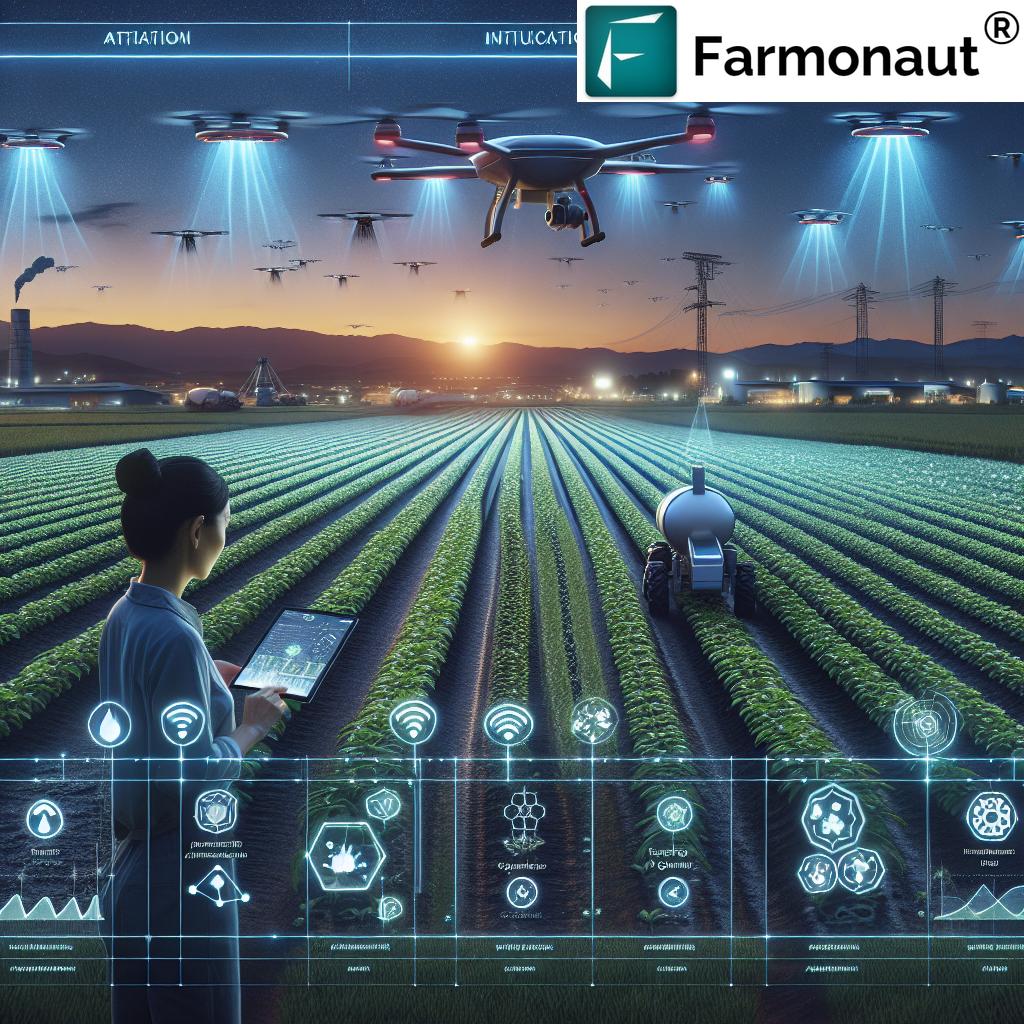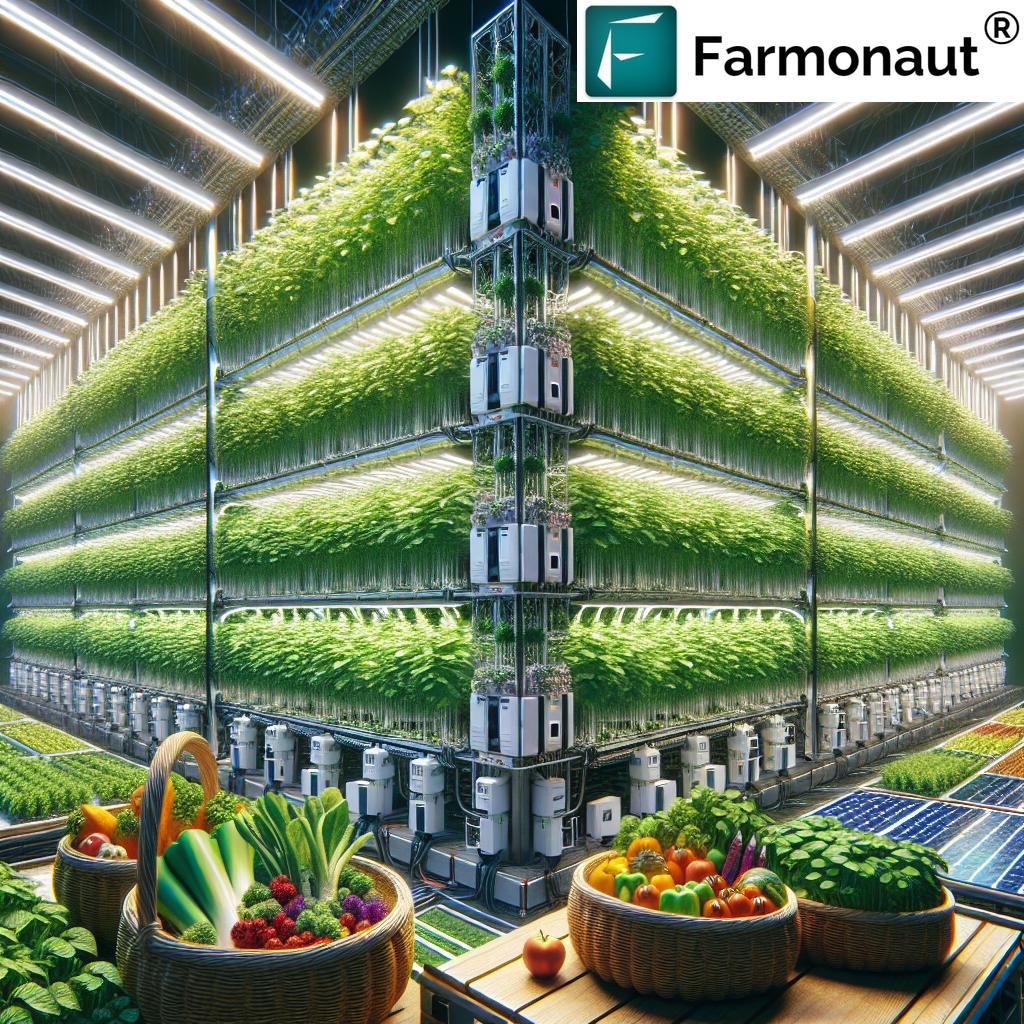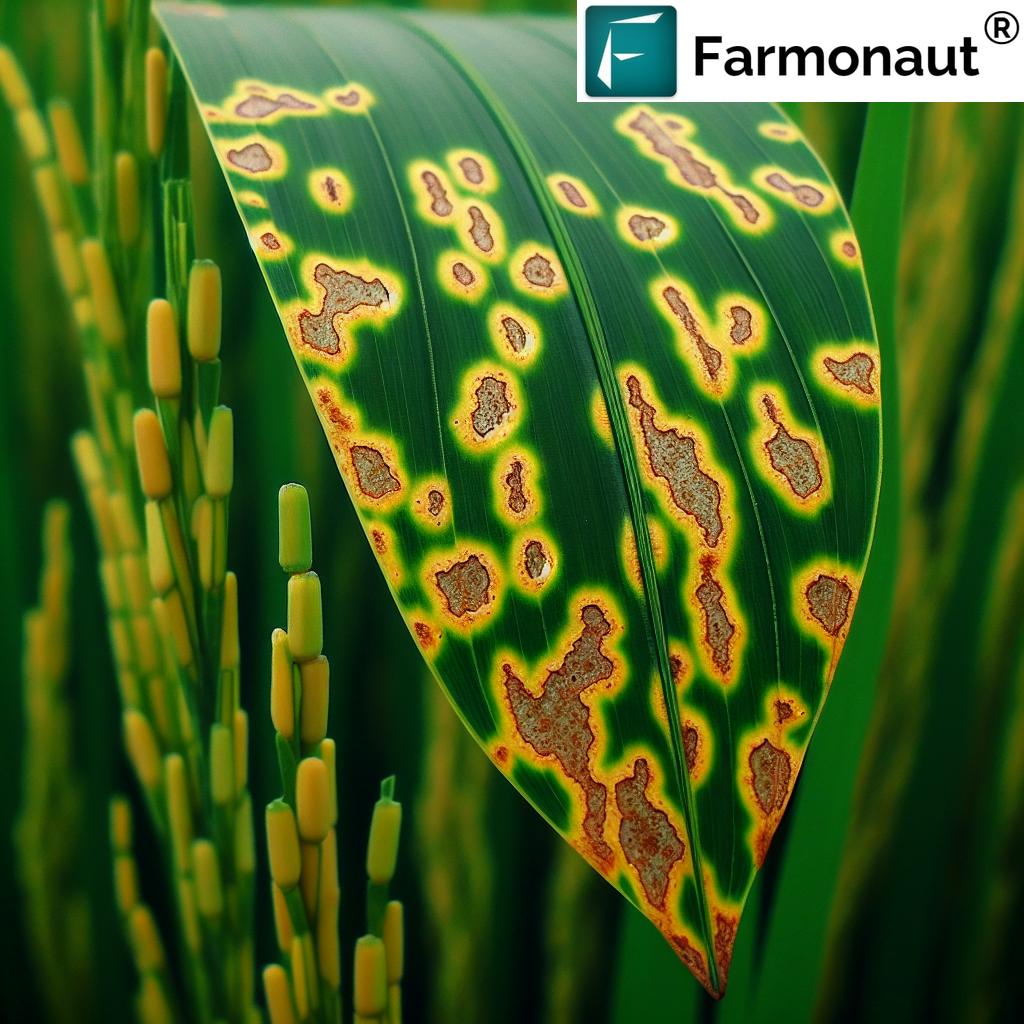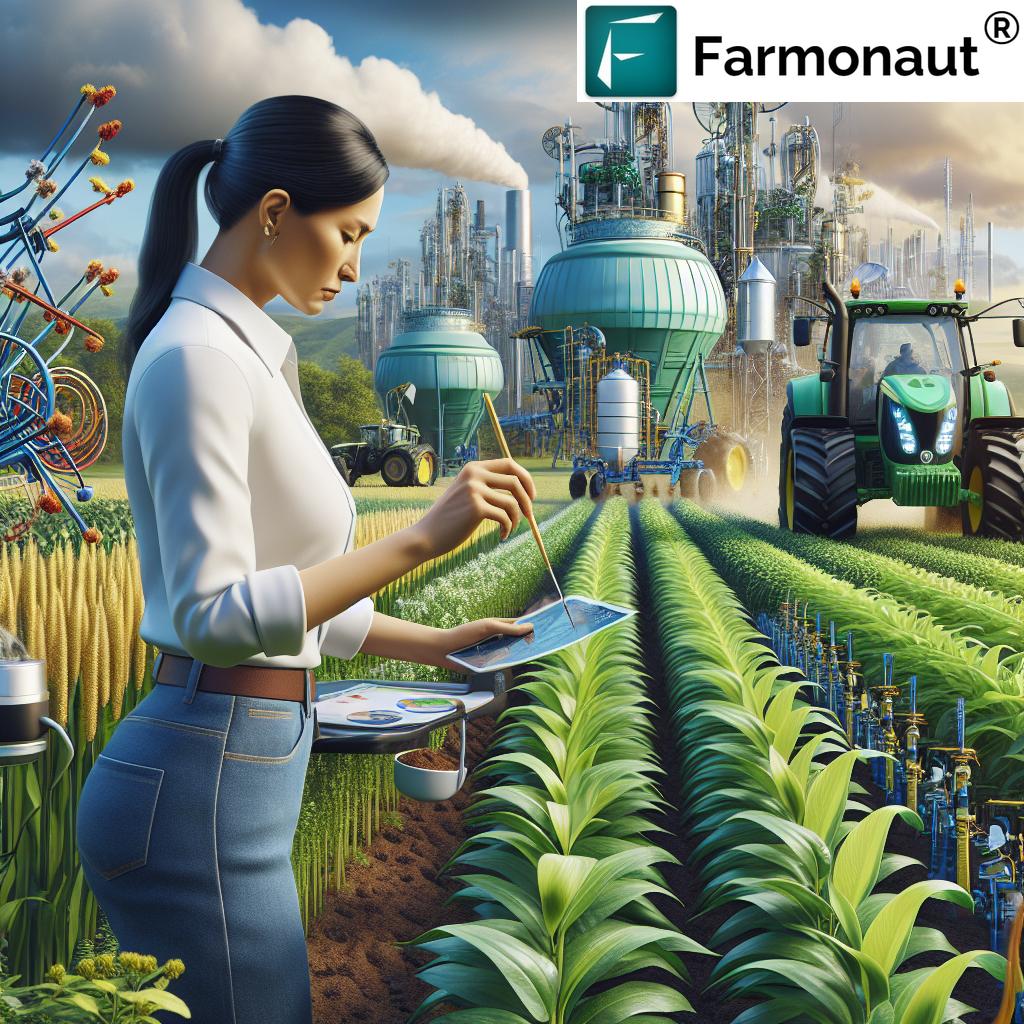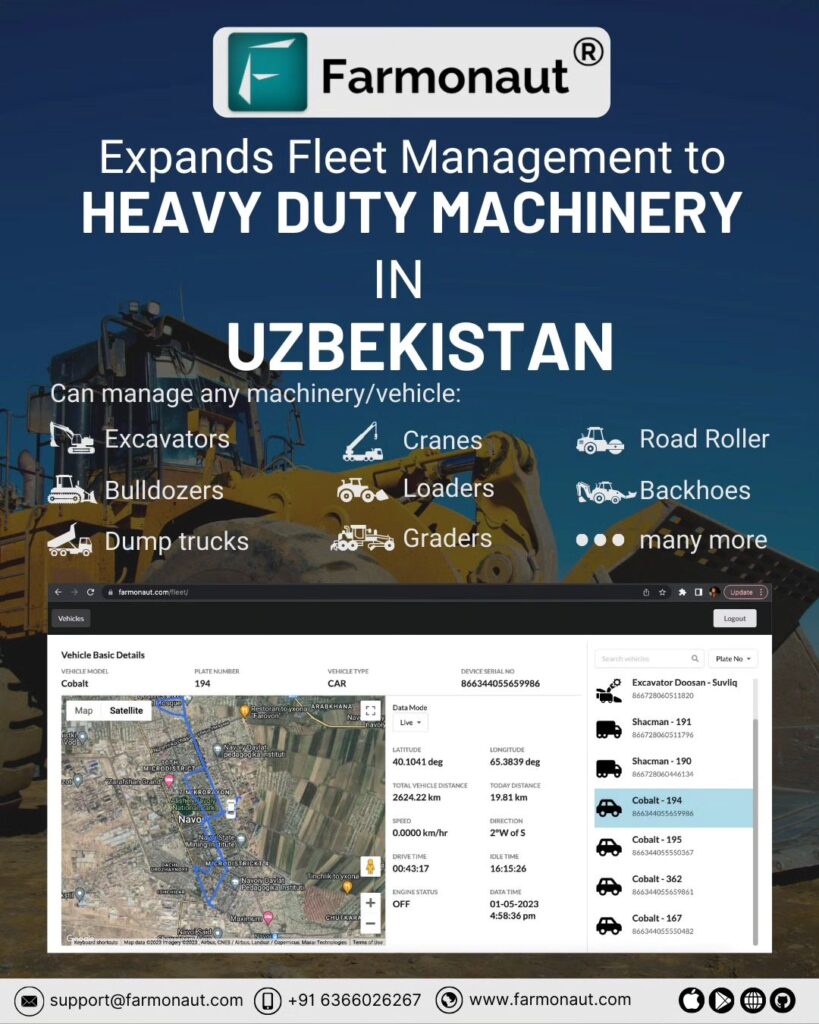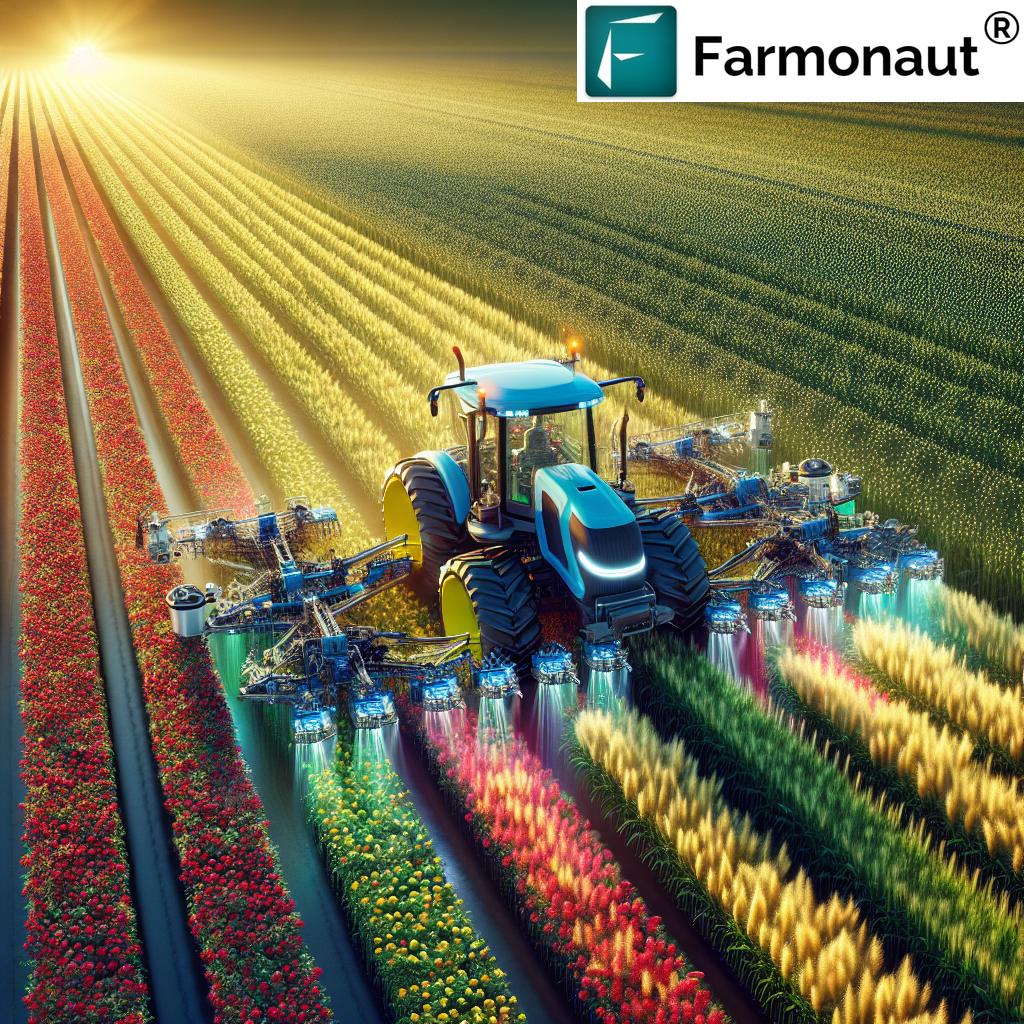AI Applications in Precision Agriculture: 7 Key Uses 2025
Table of Contents
- Introduction: AI Applications in Precision Agriculture
- Precision Agriculture and AI: An Overview
- 7 Key AI Applications in Precision Agriculture for 2025
- Comparative Table: Feature-Benefit Analysis of AI Applications
- How AI Enhances Sustainability in Agriculture
- Key Challenges and the Future of AI in Precision Agriculture
- How Farmonaut Powers AI Applications in Precision Agriculture
- FAQ: AI Applications in Precision Agriculture
- Conclusion: Shaping the New Era of Precision Agriculture
- Farmonaut Subscription Plans
Artificial Intelligence in Precision Agriculture: Revolutionizing Farming for 2025 and Beyond
Artificial Intelligence (AI) is revolutionizing precision agriculture, marking a new era in farming efficiency, sustainability, and productivity. As the global population continues to rise and climate change challenges traditional agricultural practices, the adoption of ai applications in precision agriculture has become essential. By 2025, ai in agriculture applications are more advanced and accessible than ever, enabling farmers to optimize crop yields, reduce resource wastage, and minimize environmental impact, transforming how food is produced worldwide.
Precision agriculture, at its core, leverages detailed site-specific data and intelligent technologies to manage crops, soil, and resources more efficiently. With AI-driven platforms, such as those powered by Farmonaut, farmers can make data-driven decisions quickly, ensuring the right actions are taken at the right time for every field.
Precision Agriculture and AI: An Overview
Precision agriculture involves the detailed and site-specific management of fields, using technologies that capitalize on real-time data and advanced analytics. The integration of AI, satellites, sensors, drones, and IoT devices has significantly enhanced the way crops are monitored, soil health assessed, and inputs like water, fertilizers, and pesticides are applied.
These ai agriculture applications focus on processing vast data sets collected from various sources—satellites, drones, field sensors, and connected devices. Through sophisticated models and algorithms, AI systems generate actionable insights for farmers, enabling automation and highly targeted, precise interventions—helping to reduce resource wastage, save costs, and enhance yields.
What Are the Drivers for AI Adoption in Agriculture?
- Global Population Growth: Increasing food demand requires higher crop productivity at reduced environmental costs.
- Climate Change: Weather unpredictability and extreme events threaten yields; ai models help build climate resilience.
- Resource Limitations: Freshwater scarcity and rising fertilizer costs drive the need for precision—using inputs only as and where needed.
- Sustainability Mandates: Reducing the impact of traditional agriculture on the environment becomes crucial for both large and small farms worldwide.
7 Key AI Applications in Precision Agriculture 2025
Let’s explore the top ai applications in precision agriculture that are revolutionizing modern farming. These technologies not only drive productivity and cost savings but also set the course for a more sustainable future—building on high-resolution data, real-time monitoring, and autonomous decision-making models.
1. Crop Monitoring and Health Assessment
Continuous, accurate crop monitoring is the cornerstone of precision agriculture in 2025. Thanks to ai-powered drones, satellite imagery, and computer vision algorithms, farmers can now assess crop health at scale, detecting issues that are invisible to the human eye.
- Satellite and drone imagery combined with AI models analyze multispectral and hyperspectral data—spotting subtle patterns of stress before symptoms are visible.
- Disease, pest outbreaks, nutrient deficiencies—AI identifies these issues earlier than manual inspections, allowing prompt intervention, reducing losses, and optimizing the use of fertilizers and pesticides.
- Continuous monitoring ensures that farmers can manage crops dynamically through the season, maximizing yield potential.
Farmonaut’s satellite-driven solutions deliver NDVI (Normalized Difference Vegetation Index) and detailed vegetation health scores through an easy-to-access app or API. This empowers users with real-time data, enabling actionable decisions to optimize crop health and efficiency at scale.
2. Soil and Irrigation Management
The integration of smart soil sensors, AI-driven analytics, and weather data is enabling precise, data-backed control of soil and water inputs. This area of ai agriculture applications is crucial for reducing water usage and ensuring optimal root zone health throughout the crop lifecycle.
- Smart soil sensors monitor soil moisture, temperature, and nutrient content in real-time.
- AI models analyze data to recommend tailored irrigation schedules, ensuring each area receives the right amount of water at the right time—supporting both crop growth and resource conservation.
- Predictive analytics allow anticipation of drought or flooding risks, enabling preemptive action to mitigate losses.
- The integration of IoT devices makes data collection seamless, feeding directly into management platforms for timely and actionable insights.
Through precision irrigation, farmers can not only save on water bills but also reduce soil degradation, erosion, and nutrient leaching—vital for long-term sustainability.
For large farm managers, Farmonaut Agro Admin App offers scalable solutions for centralized control, helping efficiently allocate water and fertilizers across multiple fields and regions.
3. Automated Machinery and Robotics
Modern automated machinery—from driverless tractors to robotic harvesters—is powered by advanced AI and spatial data, transforming how fields are planted, managed, and harvested.
- Autonomous vehicles equipped with sensors and vision systems navigate fields to perform complex routines independently.
- AI-driven harvesters use crop maturity data to determine the right time and location for optimal yield and minimal waste.
- Automated weeding robots identify weeds amid crops, applying targeted treatments only where needed and vastly reducing herbicide use.
- These innovations help reduce labor costs, especially critical in regions facing workforce shortages or during seasonal peaks.
Robotics is quickly becoming a mainstay for high-value and high-volume crops, supporting year-round efficiency and consistency.
To keep operations cost-effective, platforms like Farmonaut Fleet Management help agricultural businesses monitor and optimize vehicles, machinery, and resource allocation across extensive farm networks.
4. Yield Prediction and Market Optimization
Reliable crop yield prediction is at the heart of effective commercial farming and supply chain management. AI models analyze historical data, current field insights, weather forecasts, and growth models to provide accurate, actionable yield forecasts.
- Farmers optimize input use (seeds, fertilizers, labor) according to expected yields, reducing waste and improving profitability.
- Processors and distributors better plan for harvest, storage, transportation, and market timing, preventing both over- and under-supply.
- Accurate yield prediction supports crop insurance and loan verification—vital for farmer stability and investment in agricultural growth. (Learn more about Farmonaut’s crop loan and insurance solutions.)
As climate-driven weather patterns become more unpredictable, real-time data streams and AI analytics are the only way to keep forecasting models up to date—reducing post-harvest losses and optimizing food supply chains worldwide.
5. Pest and Weed Control
Precision pest and weed control using AI significantly reduces chemical application, environmental impact, and input costs. AI systems integrate remote imagery, in-field sensors, and machine learning to identify species, map infestations, and determine severity.
- Targeted treatment: Autonomous drones and robots apply pesticides or herbicides only where needed rather than blanket applications.
- AI models trained on millions of plant images can distinguish between crop species and weeds or pests, intervening only when action is justified.
- This approach reduces chemical inputs by up to 70%, directly supporting environmental and financial sustainability.
These ai agriculture applications minimize human exposure to chemicals and make pest management feasible across vast, otherwise unmanageable acreages.
6. Supply Chain Traceability
Consumers and regulators worldwide are demanding transparent food supply chains. AI-powered traceability systems, often integrated with blockchain, monitor every step of a product’s journey—from field to shelf. This ensures quality, authenticity, and food safety.
- Blockchain-enabled traceability platforms record production, processing, packaging, and transport events in a tamper-proof ledger, boosting confidence for buyers, brands, and end-consumers.
- AI systems cross-check environmental and operational data, flagging anomalies or compliance breaches in real time.
Farmonaut’s Traceability Solutions are fully blockchain-integrated, supporting supply chain transparency for crops and food products across global markets.
7. Sustainability and Environmental Impact Monitoring
Climate-smart farming relies on real-time monitoring of carbon emissions, soil health, water use, and other environmental indicators. AI-infused systems collect and analyze this data to recommend sustainable land management practices, supporting regenerative agriculture.
- Environmental sensors combined with satellite imagery measure variables like soil organic carbon, water table levels, and chemical residues.
- AI analytics offer actionable insights for carbon farming, nutrient cycle optimization, and biodiversity management.
- Farmonaut’s carbon footprinting platform (see here) empowers users to monitor, reduce, and report carbon emissions from farming operations accurately.
- These advanced ai in agriculture applications not only support compliance with future environmental regulations but position progressive farms to access green finance and carbon credits.
Comparative Table: Feature-Benefit Analysis of AI Applications in Precision Agriculture (2025)
| AI Application | Description | Estimated Impact (2025) | Resource Savings | Sustainability Benefit | Example Technology |
|---|---|---|---|---|---|
| Crop Monitoring & Health Assessment | AI-powered analysis of satellite/drones imagery for disease, nutrient & pest detection | Yield potential increase: ~20–30% | Pesticide & fertilizer use reduced by ~20% | Early detection; mitigates crop losses | Farmonaut Crop Health Monitoring, NDVI analytics |
| Soil & Irrigation Management | AI-driven soil sensor analytics for precise water & nutrient management | Water use efficiency: +40% | Water use reduced by ~30% | Improves soil health, reduces runoff | IoT Soil Sensors, Farmonaut real-time soil mapping |
| Automated Machinery & Robotics | Autonomous tractors/harvesters for map-based, efficient field operations | Labor cost reduction: ~50% | Lower fuel/energy use by ~20–25% | Minimizes soil compaction, resource wastage | Driverless tractors, AI-equipped robots, Farmonaut Fleet Management |
| Yield Prediction & Market Optimization | AI models combine historical & real-time data for high-precision forecasting | Forecast accuracy: 98% in leading models | Minimizes supply chain waste by up to 15% | Reduces overproduction and post-harvest losses | Farmonaut Jeevn AI, Satellite-based Yield Predictions |
| Pest & Weed Control | Image recognition and autonomous drones/robots for targeted chemical application | Yield loss prevention: +10–20% | Chemical use cut by ~60–70% | Protects biodiversity, soil & water | AI Spraying Drones, Smart Pest Detection (Farmonaut Jeevn AI) |
| Supply Chain Traceability | AI + Blockchain track crop journey from field to shelf for authenticity | Compliance & recall risk reduced by ~90% | Reduces food waste (spoilage, mislabeling) | Ensures food safety, enables premium pricing | Farmonaut Blockchain Traceability, QR Code Tagging |
| Sustainability & Environmental Monitoring | AI analysis of carbon, water, chemical footprints for sustainable practices | Emission monitoring accuracy: ~98% |
Fertilizer, herbicide application reduced by ~25% | Reduces GHG emissions & fosters carbon farming | Farmonaut Carbon Footprinting, Satellite Emission Tracking |
How AI Enhances Sustainability in Agriculture
The most significant contribution of AI in precision agriculture is the transition to sustainable farming practices. Let’s elaborate on the multidimensional impact of AI on agricultural sustainability as we move into 2025:
- Resource Optimization: AI enables the precise application of water, fertilizers, and pesticides, reducing excess use, environmental contamination, and costs. Water wastage drops by up to 30%, thanks to data-driven irrigation scheduling.
- Soil Conservation: Soil health is preserved through tailored nutrient and water interventions. Real-time data alerts help avoid salinity build-up, nutrient leaching, and soil erosion.
- Climate Action: AI-aided carbon footprint tracking supports climate-smart agriculture—measuring emissions, optimizing field practices, and supporting carbon credit schemes.
- Biodiversity Protection: Minimal, targeted use of agricultural chemicals helps maintain healthy ecosystems, protecting pollinators and natural pest enemies.
- Food Security: AI ensures more reliable yields, even as weather patterns grow erratic, supporting global food supply chains and reducing post-harvest losses.
Through comprehensive solutions like Farmonaut’s carbon footprinting tools and traceability solutions, businesses and farmers alike can not only comply with future sustainability mandates but also build a credible, data-backed reputation in the marketplace.
Key Challenges and the Future of AI in Precision Agriculture
While ai applications in precision agriculture promise immense benefits, several challenges and barriers remain:
- High Initial Costs: The adoption of AI, particularly advanced sensors and autonomous machinery, can be expensive, especially for smallholders. However, subscription-based solutions like those from Farmonaut are making satellite-driven insights more affordable and accessible worldwide.
- Data Privacy and Security: With millions of data points collected from fields, secure storage and responsible use of data are crucial.
- Training and Technology Literacy: Farmers and operators require training to extract full value from AI-driven management platforms.
- Connectivity and Infrastructure: Reliable internet and power are essential for real-time, cloud-connected systems.
- Diverse Agroclimatic Zones: AI systems must be tailored to local crops, climates, and farming practices—something data-rich, flexible platforms are now enabling at scale.
Future Directions: What to Expect Beyond 2025?
- Genomics-Driven Breeding: AI combining genetic data with field analytics to breed crops tailored for higher resilience and productivity.
- Climate Resilience Modeling: Advanced predictive models for adapting to climate shocks or planning for future contingencies.
- Integration with Blockchain: Beyond cryptocurrency, blockchain will improve traceability, transparency, and security across the entire supply chain.
- User-Friendly Platforms: Continuous UI/UX innovations will make AI tools even more accessible to a wider range of users, irrespective of digital literacy.
With ongoing innovation and broader adoption, ai in agriculture applications will become indispensable—not just for optimizing productivity, but for fulfilling our global commitment to environmental responsibility.
How Farmonaut Powers AI Applications in Precision Agriculture
At Farmonaut, we are dedicated to making satellite-driven and AI-powered agricultural insights affordable and accessible to users, businesses, and governments worldwide. Here’s how our platform accelerates the adoption and impact of AI in precision farming:
- Real-Time Monitoring: Our platform leverages multispectral satellite imagery to provide field-level data on crop health (NDVI), soil composition, and environmental conditions—delivered directly to your browser or mobile device.
- AI Advisory Tools (Jeevn AI): Our AI systems analyze vast datasets to generate real-time, customized guidance on irrigation, fertilization, pest intervention, and yield forecasts.
- Blockchain Traceability Solutions: Our technology provides secure, tamper-proof records of crop origin and movement, supporting food safety and sustainability reporting.
- Environmental Impact Tracking: With carbon footprinting and sustainability tools, we empower farmers and agribusinesses to measure and minimize their environmental impact.
- Fleet and Resource Management: We facilitate optimal allocation and control of farm machinery and logistics across large as well as small-scale operations.
- Developer APIs: Interested in custom integrations? Our API (see here) and detailed API developer docs make it easy to integrate our satellite and AI-driven insights into your agri-platform.
Check out our Farmonaut App — available via web, Android, and iOS — to experience firsthand the future of ai applications in precision agriculture.
Frequently Asked Questions: AI Applications in Precision Agriculture
1. What is the role of AI in precision agriculture?
AI in precision agriculture processes vast amounts of data from satellites, sensors, drones, and field devices to optimize crop management, monitor crop health, and automate farm operations. It enables data-driven decisions that help farmers use inputs like water, fertilizers, and pesticides more efficiently, increasing yields and reducing environmental impact.
2. Which AI applications are most impactful for crop yields?
The most impactful ai agriculture applications include crop health assessment, precise pest and weed control, advanced soil and irrigation management, and predictive yield models—all contributing to yield boosts of up to 30% globally by 2025.
3. How does AI help make agriculture more sustainable?
By optimizing input use and minimizing wastage, AI reduces chemical runoff, conserves water, lowers greenhouse gas emissions, and preserves soil health—significantly enhancing the sustainability of agricultural practices.
4. Can small farmers access these advanced AI and satellite tools?
Yes. Subscription models like Farmonaut’s make advanced satellite-driven AI tools affordable and easy to access via mobile or web, even for small and medium-size growers.
5. How is data privacy ensured when using farm monitoring platforms?
Modern platforms prioritize data privacy and security, following industry-standard encryption and compliance protocols. By using trusted services like Farmonaut, users enjoy robust protections for their sensitive farm data.
6. How does blockchain improve transparency in agricultural supply chains?
Blockchain creates an immutable, transparent record of all steps in the food’s journey—from field to end-customer. This improves traceability, helps prevent fraud, facilitates recalls, and assures buyers and consumers of product authenticity.
7. Where can I learn more about integrating AI and satellite technology into my farm?
Visit Farmonaut’s homepage or check out our web and mobile app for more resources, tutorials, and contact information for expert guidance.
Conclusion: Shaping the New Era of Precision Agriculture with AI
By 2025, ai applications in precision agriculture are indispensable for tackling the world’s food security and environmental sustainability challenges. As technology continues to evolve, AI and related digital tools will make agriculture smarter, more efficient, and ecologically responsible—benefiting everyone from smallholders to governments and global food corporations.
Whether through advanced crop monitoring, tailored irrigation, automated machinery, reliable forecasting, or transparent traceability, AI will continue to reshape farming across scales, regions, and climates. As we integrate these technologies further, they become not just tools for boosting productivity, but catalysts in marking a new era for agriculture—one where sustainability, efficiency, and profitability are harmoniously aligned.
Start your journey today with Farmonaut’s satellite and AI-powered solutions and join the global movement towards a better, data-driven future in agriculture.
Farmonaut Subscription Plans
Choose the right plan to unlock the full power of AI and satellite technology in your agricultural operations.





